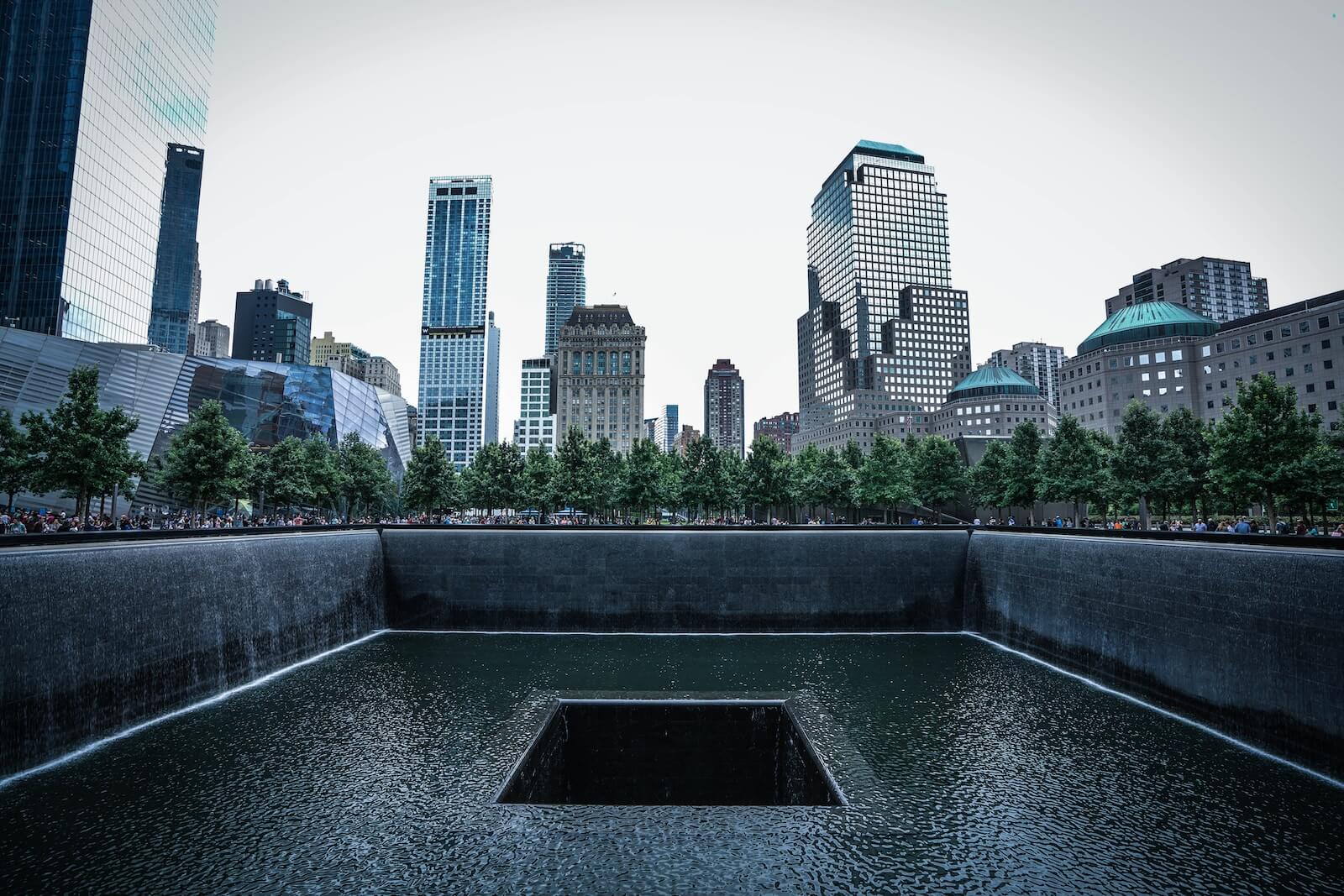NEW YORK — The 9/11 terror attacks rocked America 22 years ago, but for the first responders who raced towards the burning World Trade Center, the impact of that day is continuing to affect their health. A 2021 study found that rescue and recovery workers at Ground Zero are starting to develop chronic obstructive pulmonary disease (COPD), decades after these horrific events.
In a review of nearly 18,000 workers and volunteers who climbed into the ruins of the Twin Towers in the hours and days following the attacks, researchers from the Icahn School of Medicine at Mount Sinai discovered many have begun to develop COPD after a previous asthma diagnosis. COPD is a chronic lung condition that causes breathing difficulties, coughing, and wheezing, which only gets worse over time.
Typically, the disease mainly impacts smokers, but doctors say people who work in environmentally hazardous conditions are also at risk. Previous studies have revealed that the dust cloud produced by the destruction of the Twin Towers contained numerous toxic chemicals that have led to diseases like cancer in the workers breathing in those particles.
“We know that emergency workers who arrived in the aftermath of the World Trade Center disaster face higher risks of airway diseases, such as asthma, chronic non-specific bronchitis and bronchiolitis, probably caused by the smoke and toxic dust that persisted in the air days and weeks after the attacks. It’s important that we continue to monitor these workers to understand the long-term impacts of their exposure while working on the site because some conditions can take many years to develop,” says Professor Rafael E. de la Hoz in a media release.

Smoker’s lungs, even among non-smokers
The study looked at 17,996 people who worked at Ground Zero after the Sept. 11 terror attacks. Each person participated in a spirometry test to measure lung health in 2002 and again in 2018. These tests help doctors see how much air a person can breathe out in one powerful breath. The exams also help physicians diagnose cases of COPD and asthma. The team also compared those results to each person’s age, weight, and smoking habits.
Results reveal that first responders who arrived at Ground Zero within the first two days are at the highest risk for poor lung function. Study authors note that smoke and dust levels were at their highest during this time.
As of 2021, the study found that 586 workers (3.3%) have developed COPD, with those arriving earlier at the site at greater risk. Specifically, those working at Ground Zero right away have a 30-percent higher risk of developing COPD than those who worked there later on. The results remained the same even after accounting for people who smoke tobacco and those who are obese.
Moreover, one in four patients diagnosed with COPD are lifetime non-smokers. About 40 percent of rescue workers with COPD also had symptoms of asthma, a condition known as asthma-COPD overlap or ACO.
“Many of these workers were non-smokers and in their early 40s in 2001, and COPD is rare in that age group. Twenty years on from their work at the World Trade Center site, and despite decreasing rates of smoking, we are starting to see cases of COPD emerge. Our study shows that those facing the greatest risk are those who worked on the site in the first day or two after the towers collapsed and in those who had previously been diagnosed with asthma,” Prof. de la Hoz adds.
Protecting the health sacrifices of first responders
Researchers say their findings may help ensure World Trade Center rescue workers get proactive care and treatment for the growing number of people beginning to deal with lung diseases in the years following the tragedy.
“Besides my research work, I have been diagnosing and treating these workers’ airway disorders since 2002, through smoking cessation, encouraging weight reduction and improved diet and lifestyle, curtailment of ongoing occupational exposures, appropriate vaccination, treatment of disease worsening comorbidities, and pulmonary rehabilitation when appropriate. We would like to think that this work may have prevented worse COPD morbidity,” Prof. de la Hoz explains.
“COPD is a serious disease that can have a major impact on people’s day-to-day lives, but importantly it is preventable. Treatments and rehabilitation can help to relieve COPD symptoms, but it is so important to raise awareness of how to prevent the disease or diagnose it at the earliest possible stage,” adds Arzu Yorgancıoğlu, Chair of the European Respiratory Society Advocacy Council and Professor in Pulmonology at Celal Bayar University in Turkey.
“Around the world, we rely on our emergency workers to help when disasters occur. This study shows how important it is to keep monitoring the health of workers, like those who attended the World Trade Center site 20 years ago, as occupational exposure to pollutants can lead to COPD. What we can learn from research like this is not only how best to care for emergency workers who operate in dangerous conditions, but also how we can protect them in their work in the future.”
Yorgancıoğlu did not take part in the study.
Researchers presented their findings at the ERS International Congress.
This story was originally published in September 2021.


I am trying to find any information about my participation at “Ground Zero”. I volunteered and worked at GZ from 12-14 Sept. Or someone who saw me there with James Symington and his dog “Trakr”.